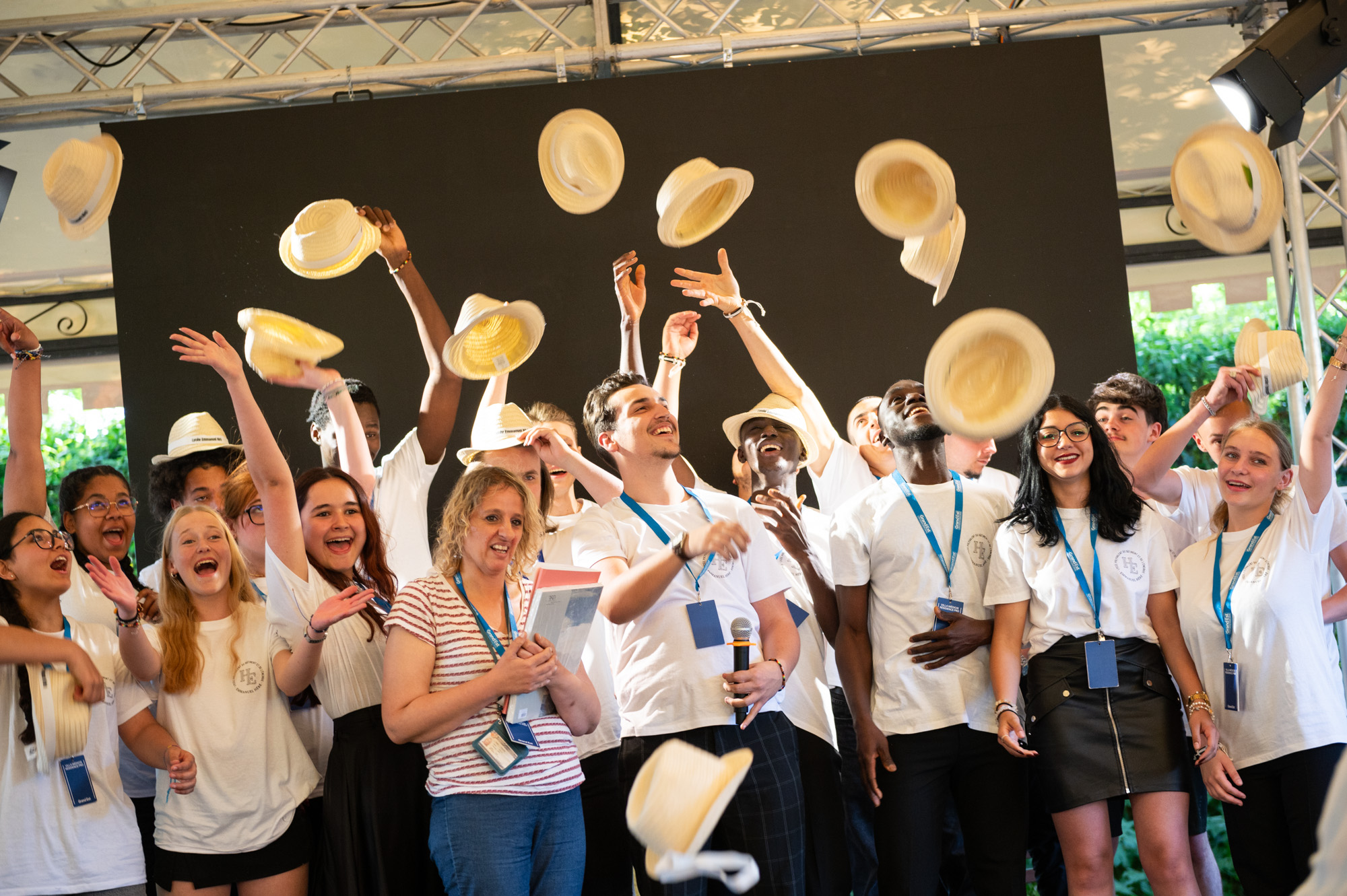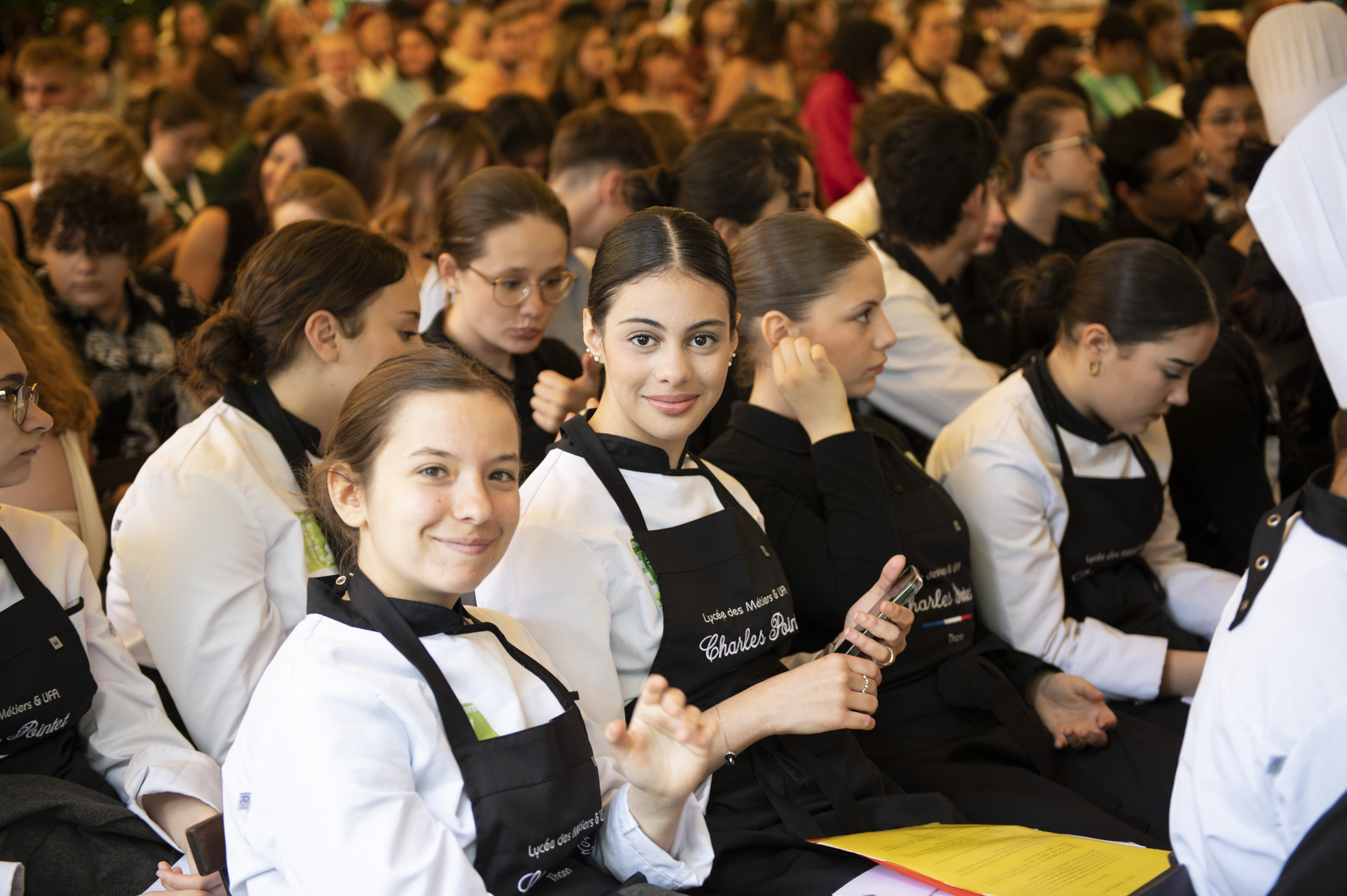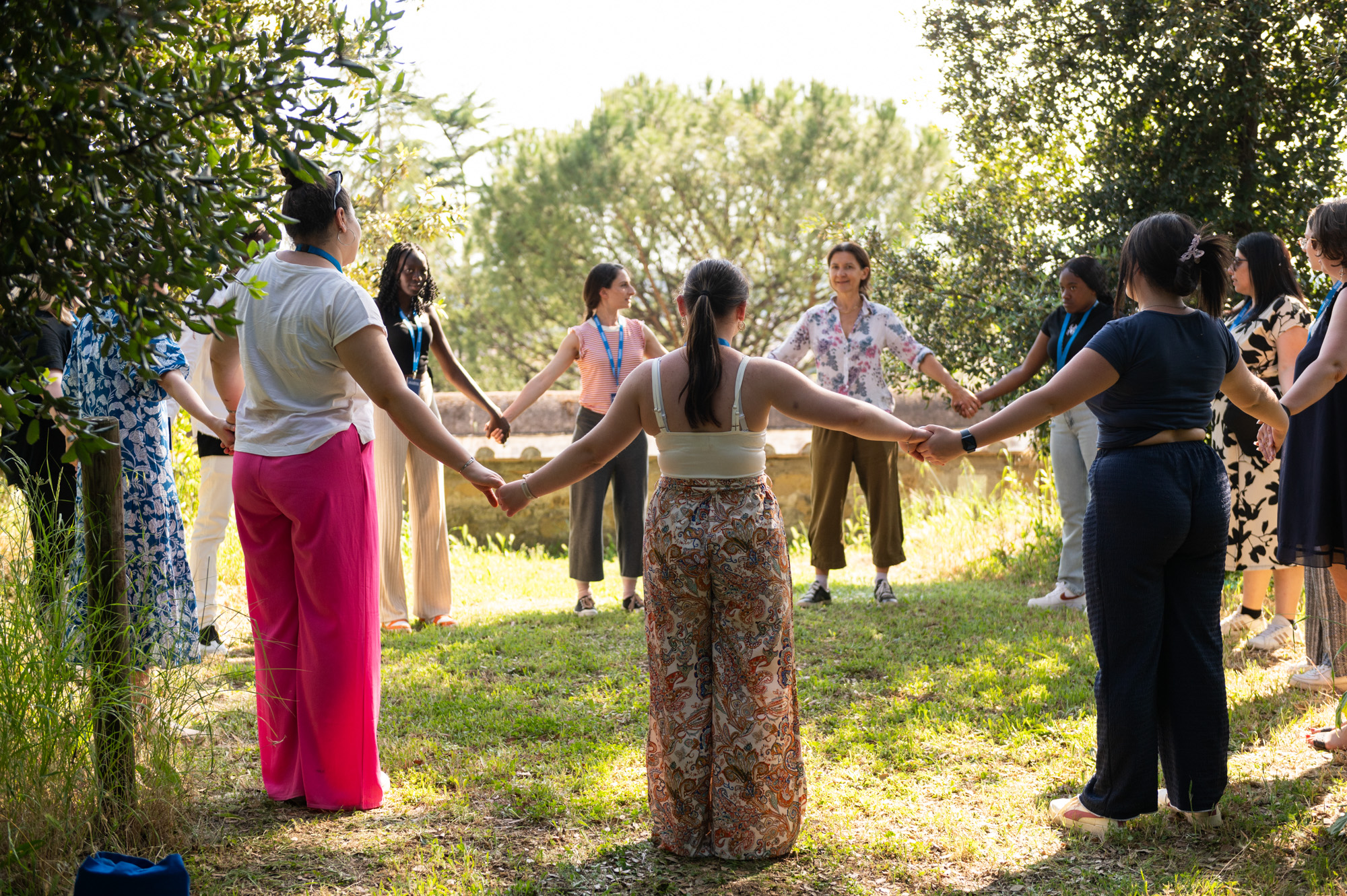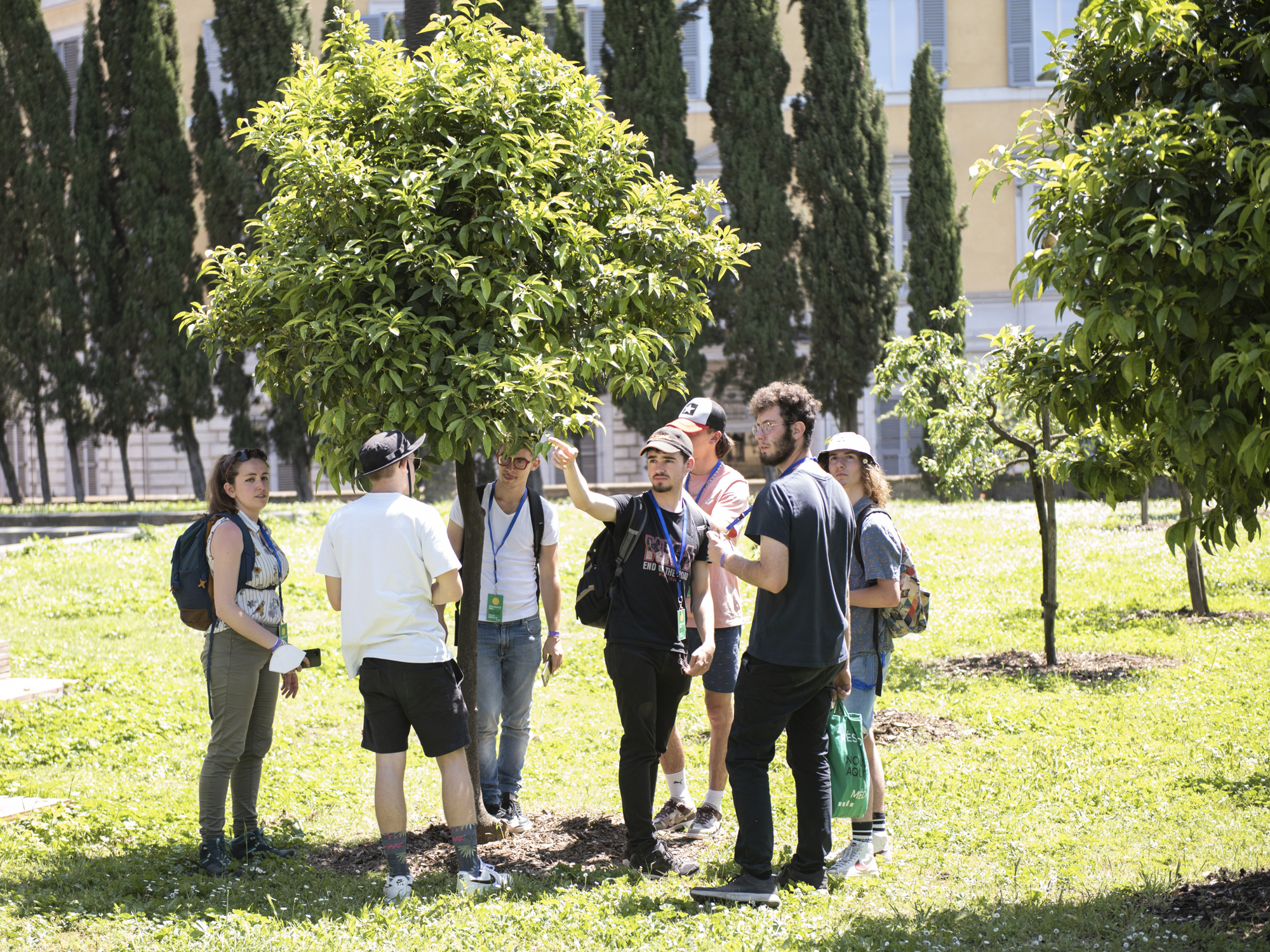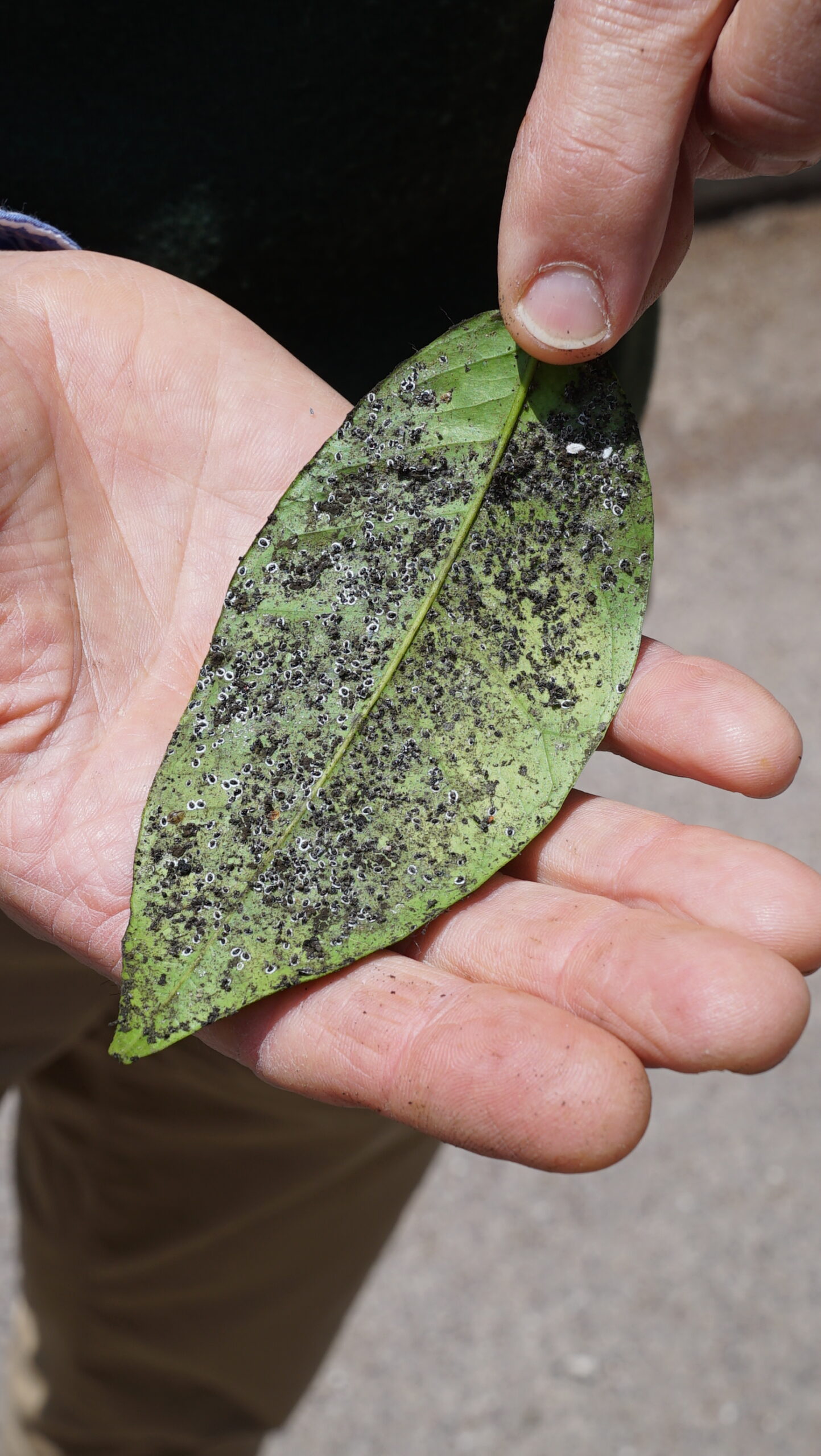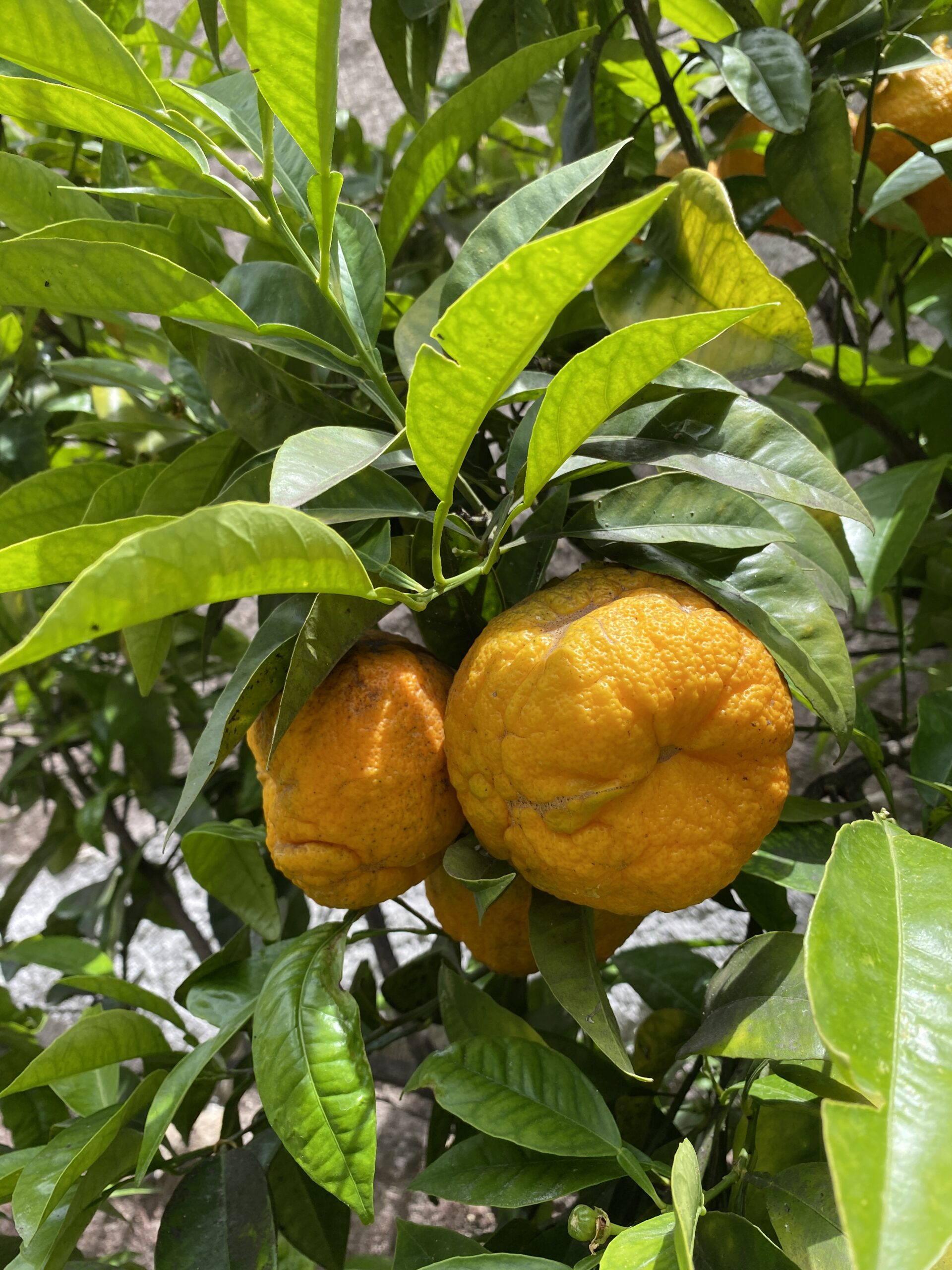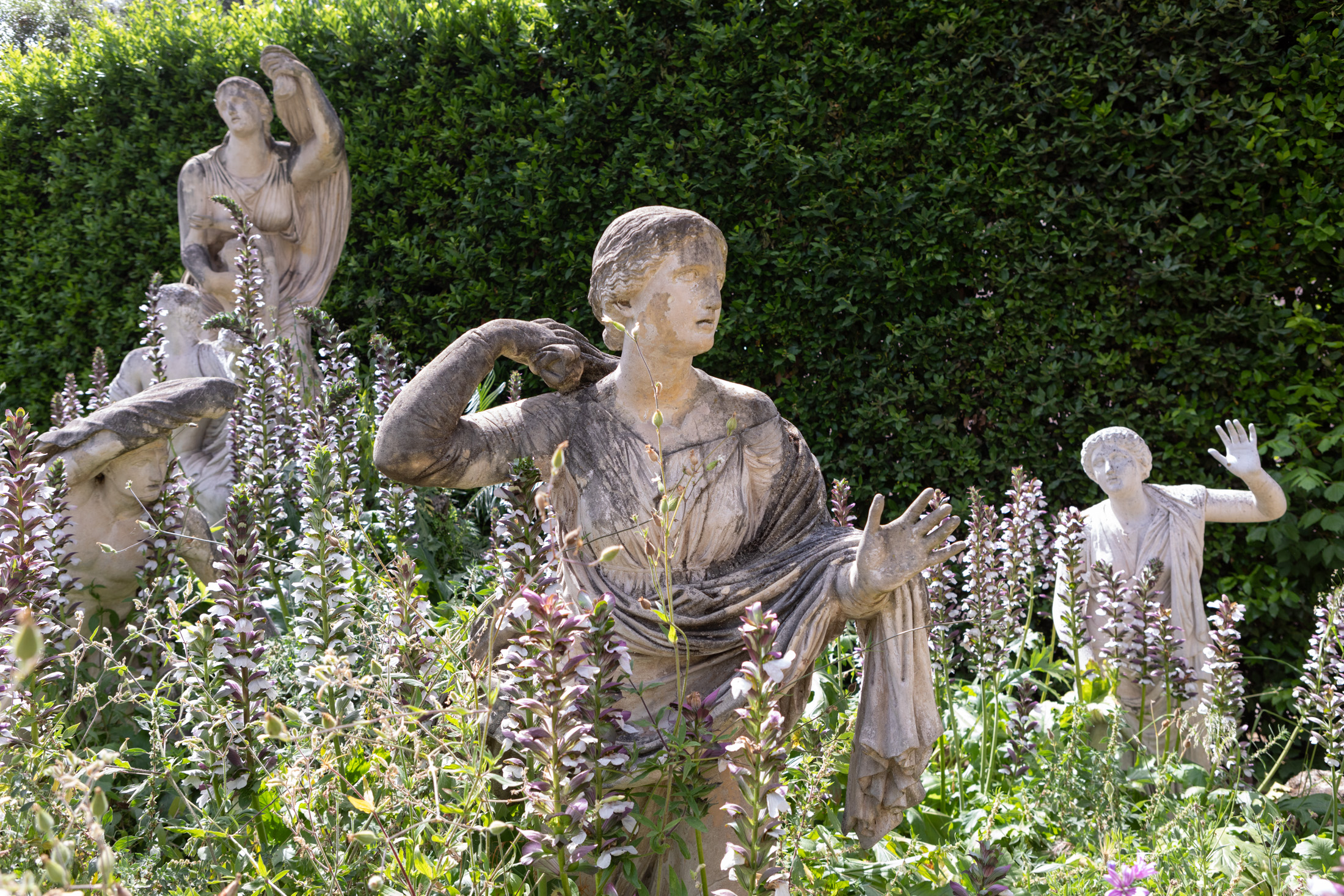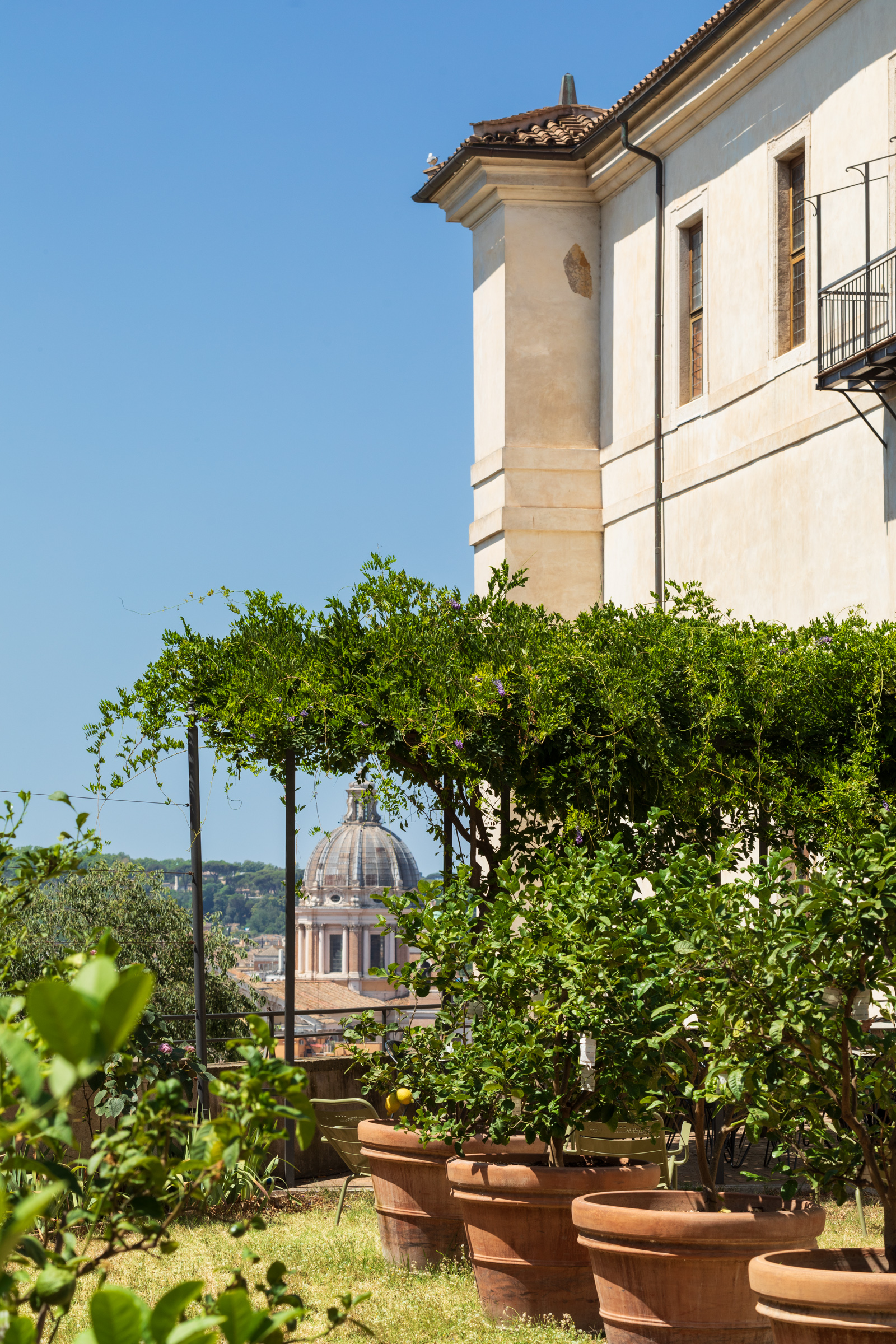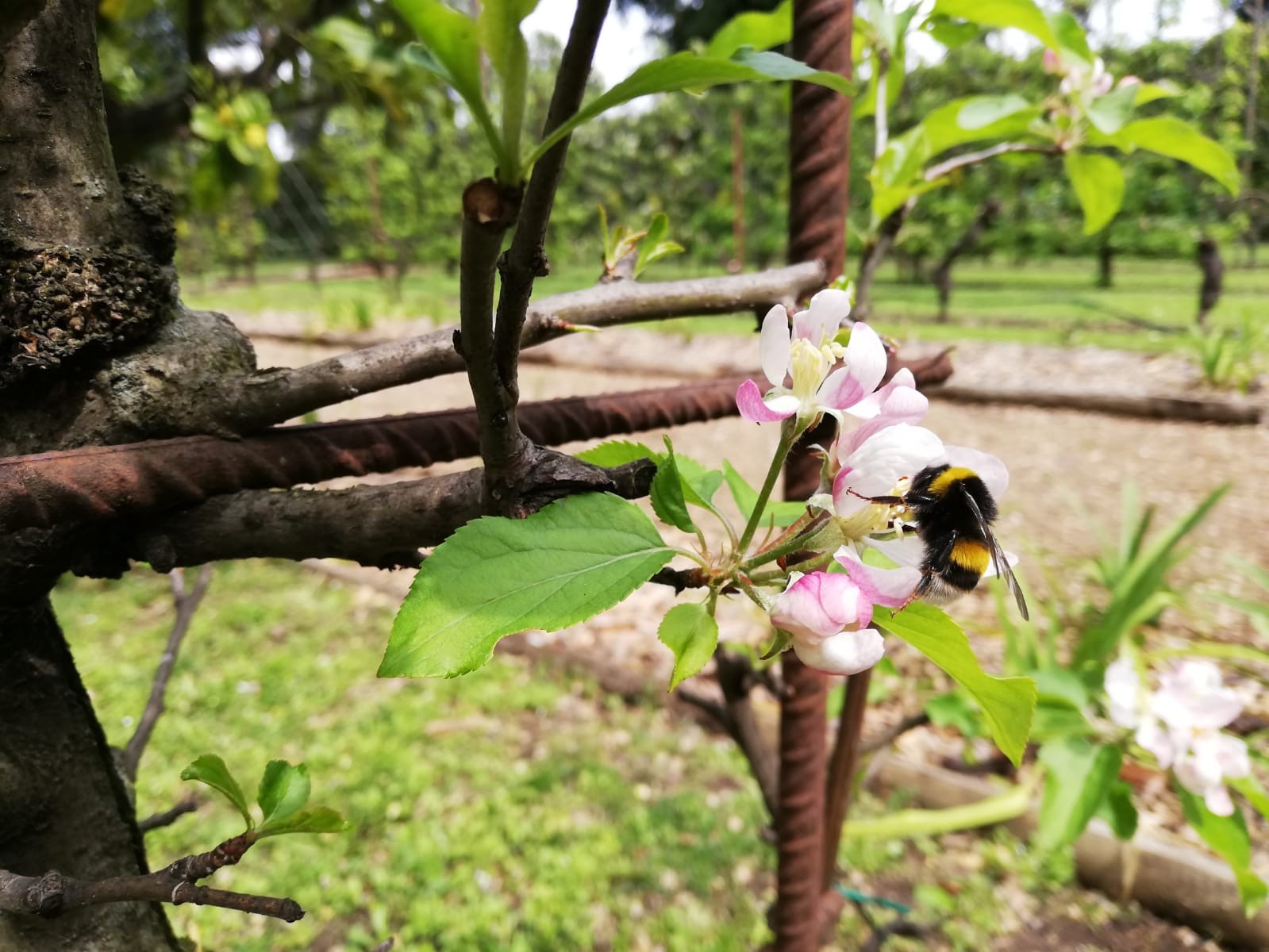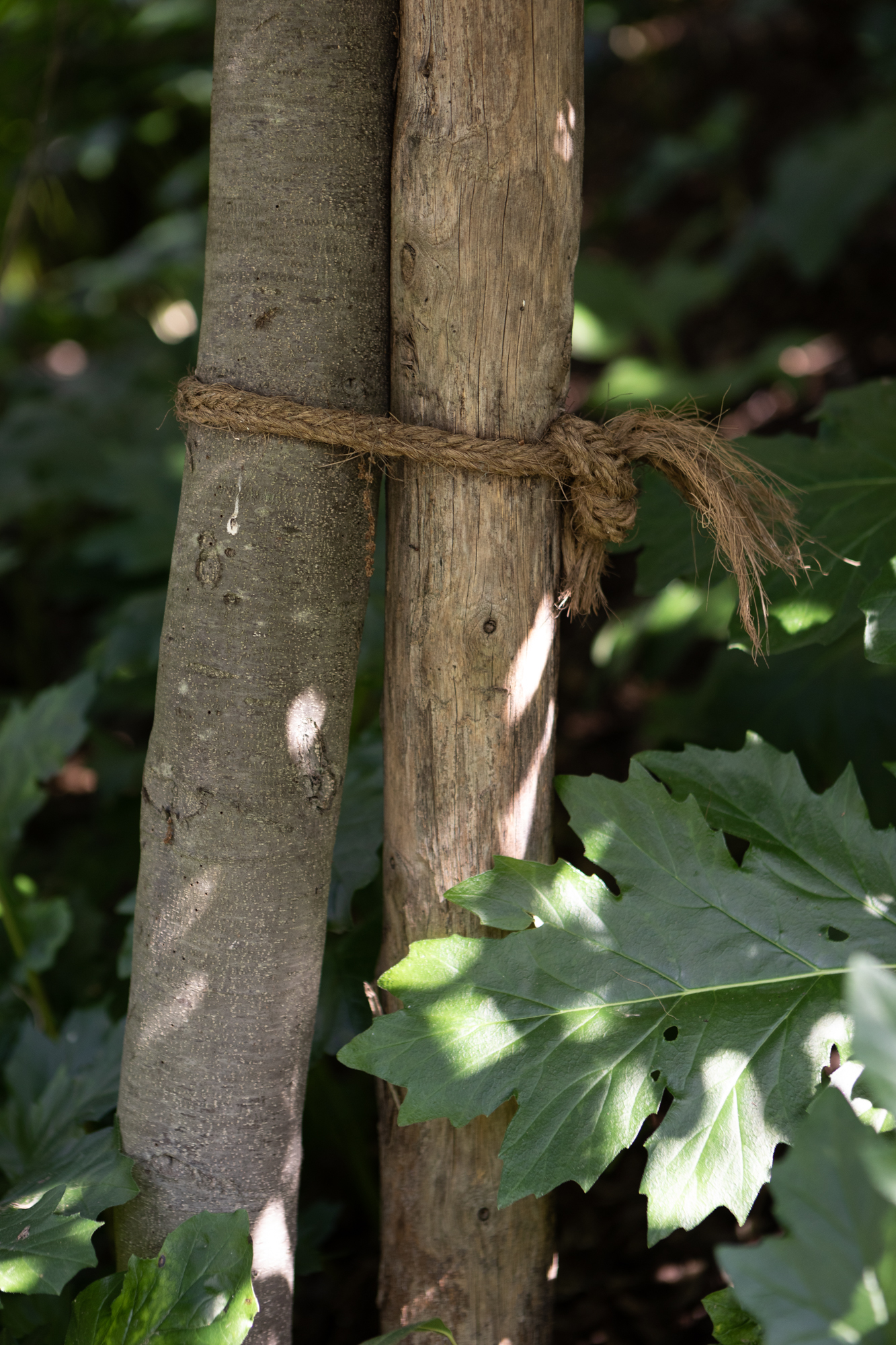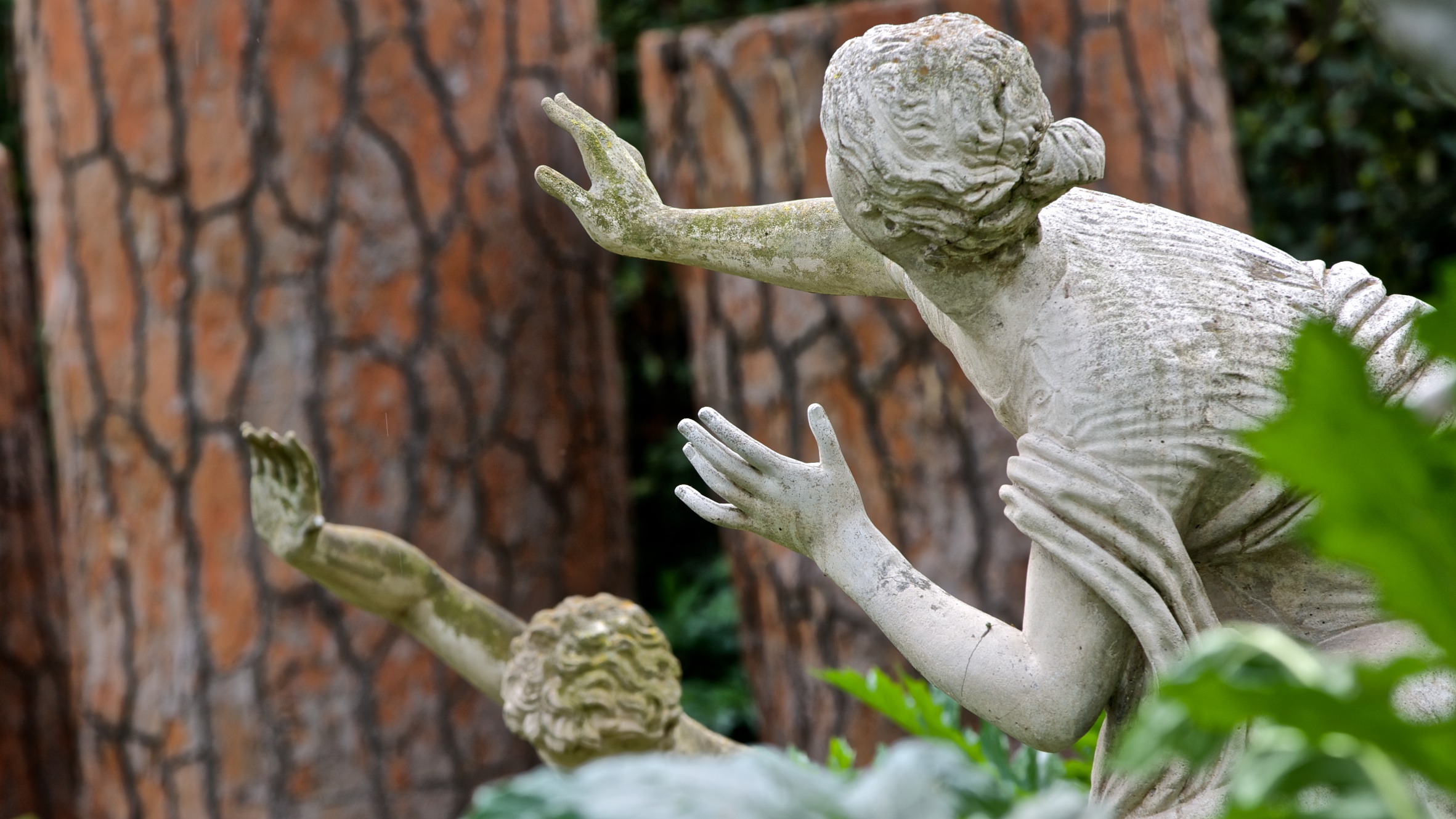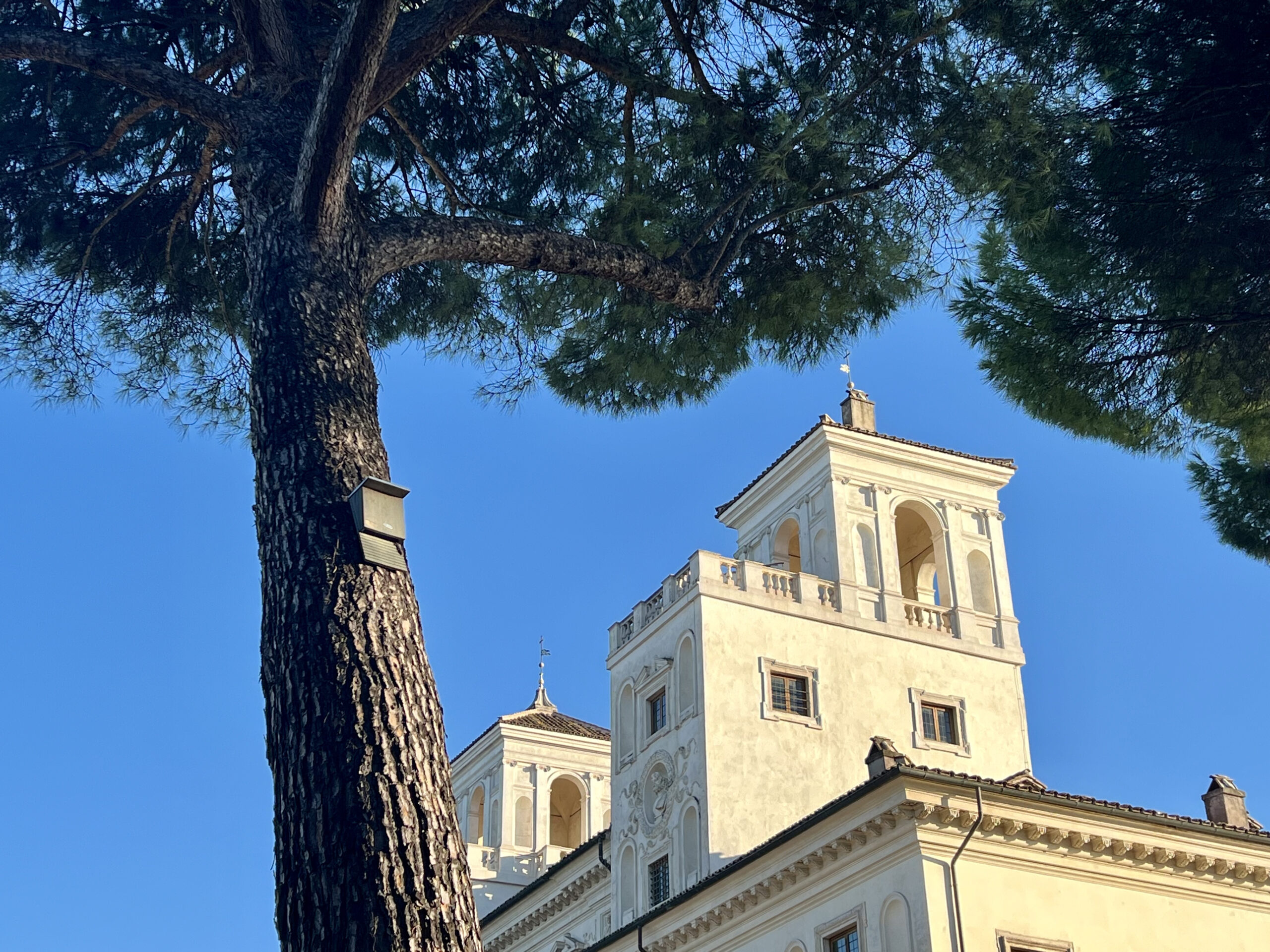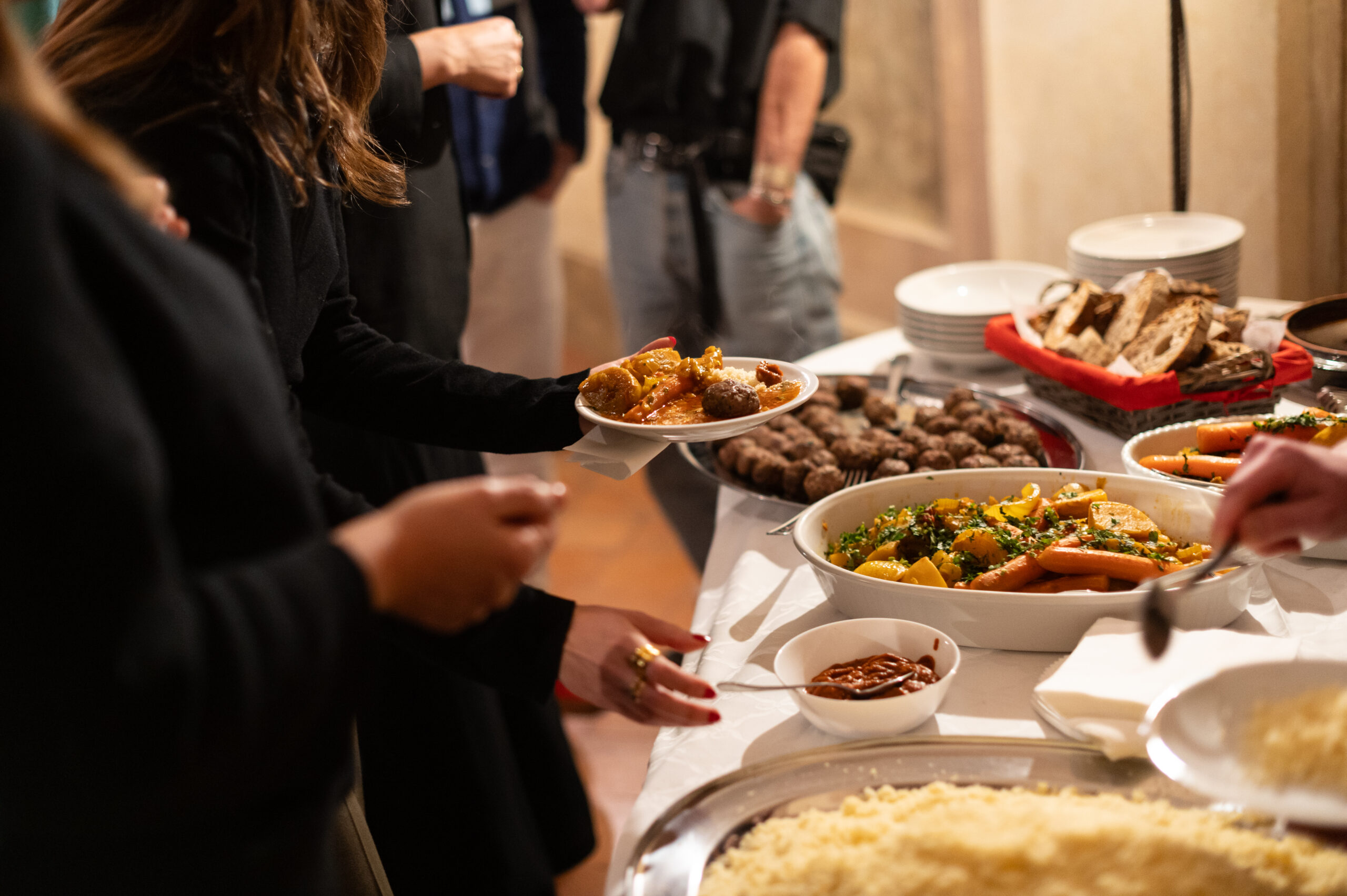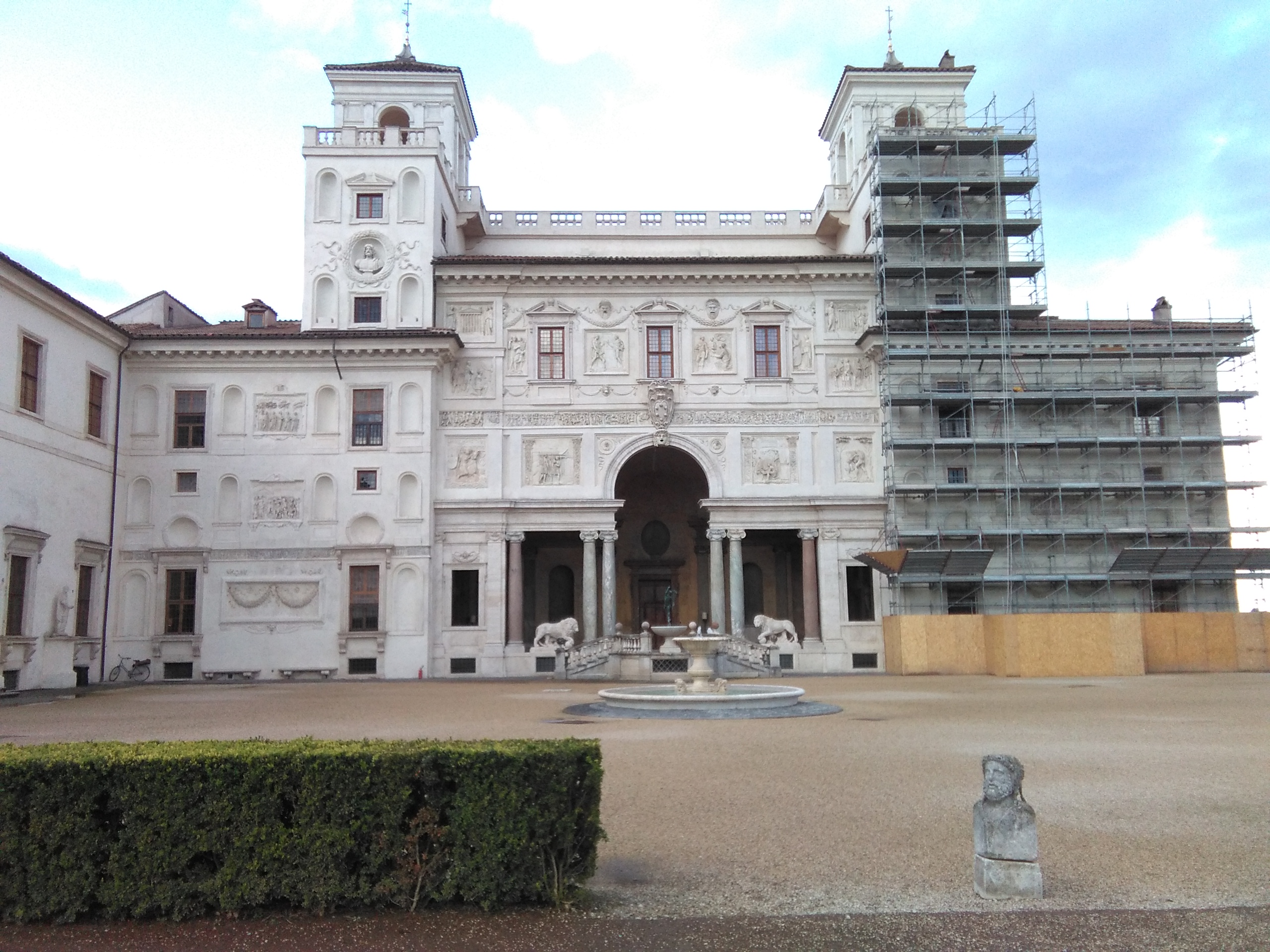Search
Commitments
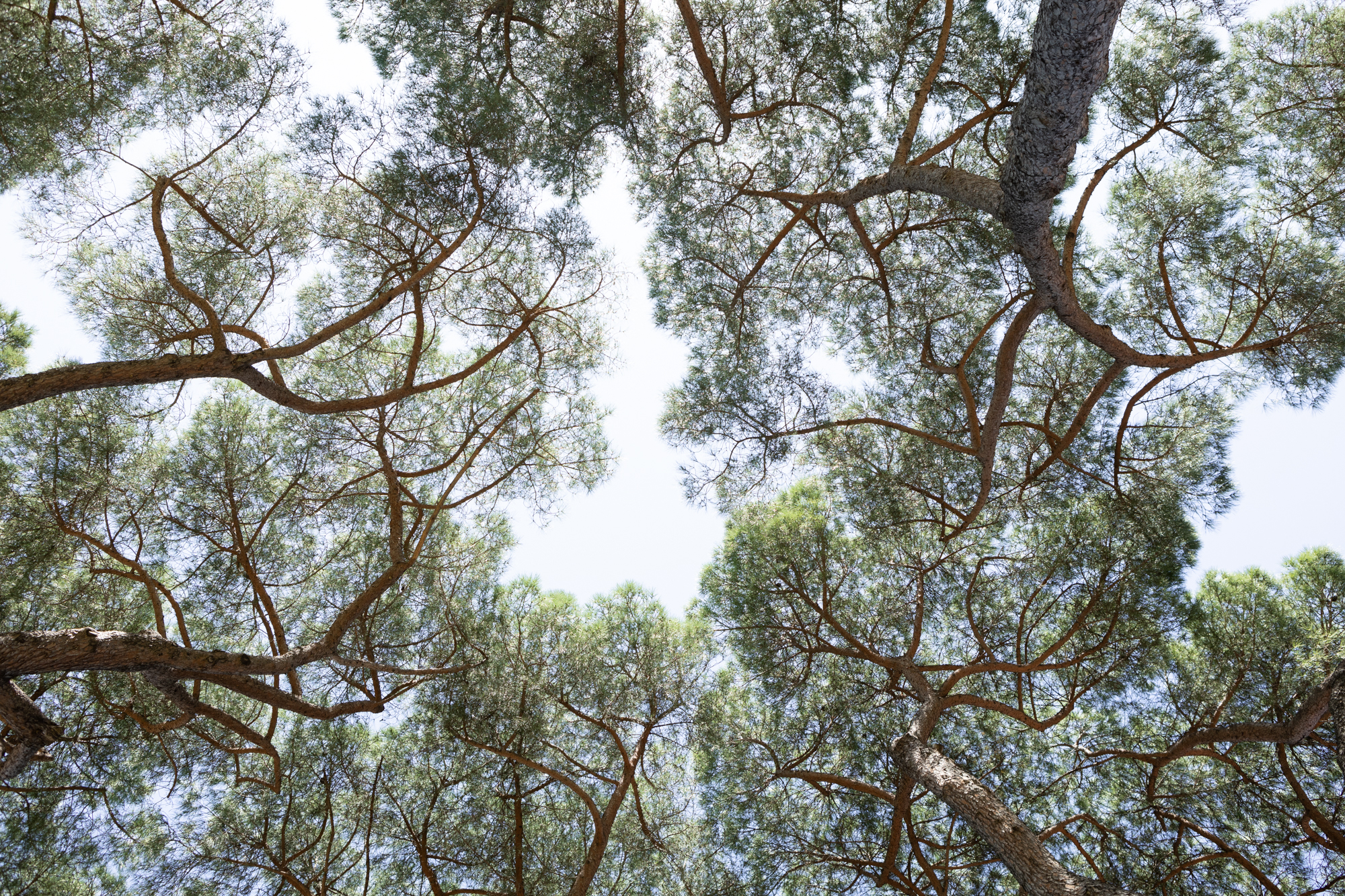
In all its business areas, Villa Medici is committed to social and environmental responsibility.
Culture as a factor in social and professional integration
Young people in residence
Villa Medici pursues an active policy of welcoming young visitors, raising their awareness of the challenges of creation and artistic craftsmanship. Every year, the Résidence Pro program enables several hundred students from French vocational and agricultural high schools to spend a week in residence at Villa Medici. This experience of discovery and change of scenery is built around a rich program of visits, meetings and workshops on the links between arts, techniques and crafts. Each year, Villa Medici also welcomes a number of young graduates from French art schools as part of a partnership with the Fondation Culture & Diversité. Winners of the Foundation’s Equal Opportunity program, the young artists hosted in Rome benefit from a week-long residency with a program of meetings, seminars, workshops and training in contact with French and Italian cultural players, residency specialists and artists from a wide range of backgrounds and profiles. The program is designed to help them develop their professional network, deepen their understanding of the residency ecosystem in France and abroad, and gain a better grasp of the challenges facing their chosen sector.
Towards professional integration
Villa Medici also welcomes numerous student interns throughout the year, to support its teams. Interns are welcomed in a number of departments: artistic programming, human resources, communications, sponsorship, art history, publishing and general secretariat. Attentive to the issue of equal opportunities in access to internships, Villa Medici has set up a scheme for students on French higher education grants, which consists of covering the cost of round-trip travel from France to Rome for the internship, and making accommodation available on a priority basis at Villa Medici. In the field of social and professional integration, Villa Medici has been collaborating since 2017 with the Italian Ministry of Justice around a partnership program involving a group of female inmates at the Rebibbia prison. Trained by culinary chef Nadia Malpassi, the participants are responsible for making jams from oranges harvested in the gardens of Villa Medici.
Natural care for historic gardens
Protecting biodiversity
The 7 hectares of gardens at Villa Medici represent a precious living heritage to be preserved and passed on. The team of gardeners ensures 100% eco-responsible daily maintenance. Phytosanitary products were abandoned over 15 years ago in favor of natural treatments to combat the various parasitic attacks (mealybug-tortoise on umbrella pines, elm gall, laurel psyllid, red palm weevil, citrus mealybug and box tree borer). Polluting equipment (tractors) has gradually been replaced by clean vehicles such as cargo bikes and electric vans. It’s not unusual for visitors to Villa Medici to witness strange ballets of cargo bikes through the gardens! Bat shelters have been installed on the trunks of the pines and holm oaks to combat mosquitoes naturally, thus doing away with the use of insecticides and encouraging the return of fireflies to the bosco. To fertilize its soils, Villa Medici has been using since 2021 a process developed by Marcel Mézy, a “farmer-researcher” from Aveyron who pioneered the concept of sustainable agriculture. His fertilizer, spread in the different areas of the gardens, is composed of an assemblage of 16 plants and 8 trees that are composted according to a specific process and duration. This assembly has made it possible to select a microbial ecosystem made up of thousands of micro-organisms (bacteria, fungi, archaea, microalgae, etc.) essential for natural soil fertilization.
Water in Villa Medici
Water management is also an integral part of this eco-responsible commitment. It concerns both the gardens and the daily lives of the occupants of Villa Medici. In the gardens, the fountains have been on a closed circuit for over twenty years. Plants are irrigated sparingly, leaving flowering meadows to turn yellow in the increasingly hot summers and keeping only certain exceptional areas, such as the parterres and the Niobides square, green.
The value of everyday gestures
In the kitchen
Villa Medici pays close attention to environmental issues in its day-to-day activities, convinced that the sum of small gestures promotes a virtuous dynamic. The in-house cafeteria for fellows, residents and Villa Medici teams is 100% supplied with local, seasonal and sustainable produce. Each guest chef in residence contributes to the network of local producers from which Villa Medici obtains its supplies. A collective compost area has also been created in the gardens, and 4 drinking water fountains have been installed on the estate to discourage the use of plastic bottles (each team member has his or her own Villa Medici branded water bottle!)
From exhibitions to building maintenance
Actions in favor of eco-responsibility also concern artistic activities: Villa Medici encourages guest artists to travel by train whenever possible, and reuses or donates exhibition sets. In terms of energy efficiency, the company’s building renovation and thermal insulation campaigns make use of short supply chains and sustainable materials such as Italian chestnut and hemp. In addition, Villa Medici ‘s invitations to tender for works campaigns systematically include a social and environmental criterion designed to encourage companies to adopt virtuous measures. Last but not least, the Villa Medici team is made aware of environmental issues through group seminars and the mobilization of referents on these subjects appointed from among the staff.
Digital sobriety
A redesigned site
Villa Medici has spent a year and a half completely redesigning its website to make it more eco-responsible, with completion scheduled for autumn 2024. Specialists in sober digital practices and technologies were called in to take into account the ecological impact of the entire life cycle of the new website. The site is hosted by a French company that uses immersion server cooling technology instead of traditional air cooling, reducing power consumption by 30% and the footprint by 50%. The issue of data archiving was also carefully considered. The migration of content from the old to the new site was an opportunity to remove a considerable number of obsolete pages and media. On the new site, the “Memories” section brings together all the institution’s artists, directors and events in chronological order. The default navigation in this section is exclusively text-based, while image-based navigation requires action on the part of the user (activation of the “Balade en images” mode).
Minimalist style
Other technical choices have been made in favor of controlled environmental costs: optimized code and scripts, a static site (Next.js framework) reducing page loading times, a streamlined design, a rationalized tree structure, a single font used for the entire site, automated image compression and progressive display as images scroll(lazy load), conversion of photo portraits on the site to a binary color code to limit their weight, and off-site video hosting. Raising awareness of the need for digital restraint among Villa Medici ‘s communications teams has also led to the application of a number of best practices on a day-to-day basis: reasoned use of media, deletion of obsolete content and monitoring of digital data, particularly page weight.
